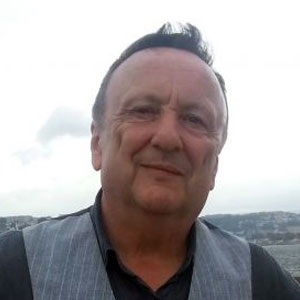Making a visible difference
Some remarkable achievements by young people with learning disabilities in the world of TV, film and theatre are highlighted in this issue. Actors, dancers, choreographers, film directors, animators and musicians are making their mark on the British cultural scene in unprecedented ways, and which were probably unthinkable even 20 years ago.
We are proud to showcase and celebrate their great talent and the brilliant work of those who have worked alongside them to achieve these breakthroughs. The efforts of Oska Bright in film, Creative Minds in theatre and dance and the Open Theatre Company in TV and theatre performance have all been fundamental to this cultural shift.
Most importantly, these creative young talented people have themselves put in the hours, hard work and dedication to perfect their craft and, as the old axiom has it, have probably had to work twice as hard to show they are half as good.
Many barriers remain, some of them explored (pages 18-19) by Richard Hayhow, the pioneering director of the Open Theatre Company. Nevertheless, this is a success story and, hopefully, one that will change perceptions across the wider public. Nothing serves the cause of inclusion better than the routine appearance and involvement of people with learning disabilities in things we all talk about and around which we build our shared experiences. There are encouraging signs that this is gradually becoming the norm rather than the exception.
Alongside this positive development are other ways in which people are seen. People are still being denied the right to exercise their vote, while others are labelled as “challenging” – and still more are treated with the “chemical cosh” of overmedication to keep them quiet and passive. We report on campaigns to address each of these pernicious assaults on the fundamental rights of people with learning disabilities to be part of society, and to live fulfilled lives.
As we rightly celebrate the achievements of a confident new generation, for whom the incarceration and inhumanities of recent history are remembered (if at all) as a distant horror story, we must not forget those who are still mired in the legacy of that past. Not everyone can be a star, but everyone can live a life without the straitjacket of a label, without the denial of basic rights and without having their minds subdued for the convenience of others. We must fight relentlessly for their right to do so.
Tunnel vision commissioning
It is more than 10 years since the Department of Health launched the “world class commissioning” framework in 2007, which it billed as “a statement of intent, aimed at delivering outstanding performance in the way we commission health and care services in the NHS”.
The idea has been quietly shelved in recent years, retrievable only from its resting place deep in the department’s digital archives. It was, perhaps, overambitious. Most of us today would settle for something like “pretty good commissioning”. Sadly, even that seems hard to achieve, not only in health services but also in social care.
In this issue, we feature the story of the Engine Shed in Edinburgh, an excellent social enterprise that provided training, work experience and pathways into employment. Much loved by the public, generating 60% of its income through trading and getting up to 80% of its trainees into fully paid work, it was the epitome of what is sometimes called “social capital” – the networks of social bonds, relationships, goodwill and bridges that build healthy, functioning societies.
But a change in commissioning approach meant that it no longer met the local authority’s criteria for funding, and it exists no more. That was certainly not world class commissioning. It wasn’t even pretty good.
Simon Jarrett
Editor

